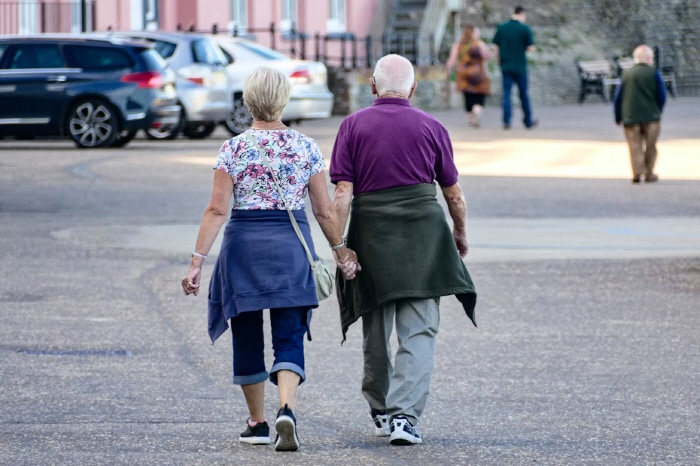Old Man Who Walks, Improving Quality of Life...Up to 2.33 times higher
|
While the quality of life of the elderly is known to have a significant relationship with exercise and obesity, a recent study confirmed that walking exercise among exercise types greatly helps improve the quality of life of obese elderly.
A research team led by Kim Jung-ha and Lee Hye-joon of the Department of Family Medicine at Chung-Ang University Hospital recently published a research paper on the Walking Excellence Has a Stronger Association with quality of life in the obese elderly: An Nationwide population-based study).
Based on the data from the 2016-2020 National Health and Nutrition Survey, the research team evaluated 6060 people aged 65 or older on the quality of life (EQ-5D) according to exercise type (lactic acid exercise, muscle exercise, walking exercise), exercise intensity (appropriate/insufficient/non-participation), and obesity (BMI ≥25kg/㎡), and evaluated and analyzed the combined effects of exercise in the obese and non-obese elderly.
As a result, among the types of exercise among the elderly, there was no significant relationship with the quality of life according to aerobic and muscle exercise, while the elderly who did more than 150 minutes of proper walking per week had 1.71 times higher quality of life than the elderly who did not walk.
Compared to the elderly who do proper walking exercise, the elderly who have insufficient walking exercise or who do not do walking exercise were more likely to have problems in the areas of mobility, self-care, daily activities, and pain/inconvenience evaluating quality of life (EQ-5D).
In particular, in the case of obese elderly people, the elderly who exercised more than 150 minutes of proper walking per week had a 2.33 times higher quality of life satisfaction score than the elderly who did not walk, and the elderly who did proper walking exercises had 1.73 times higher quality of life than the elderly who did not walk.
As a result, the research team showed a proportional correlation between walking exercise and quality of life improvement in the elderly, and this correlation was more pronounced in the obese elderly.
Professor Lee Hye-jun said, `This study confirmed that encouraging proper walking exercise of more than 150 minutes per week can be an effective, safe, and cost-effective strategy for improving the quality of life for obese elderly people.'
Professor Kim Jung-ha then said "This study will have important clinical and public health implications not only for improving the quality of life for the elderly due to the increasing aging population, but also for reducing disease morbidity and mortality."
Meanwhile, the study by Professor Kim Jung-ha and Professor Lee Hye-jun's team was published in the latest issue of the SCIE-level journal, the International Journal of Geriatrics & Gerontology.
|
This article was translated by Naver AI translator.





